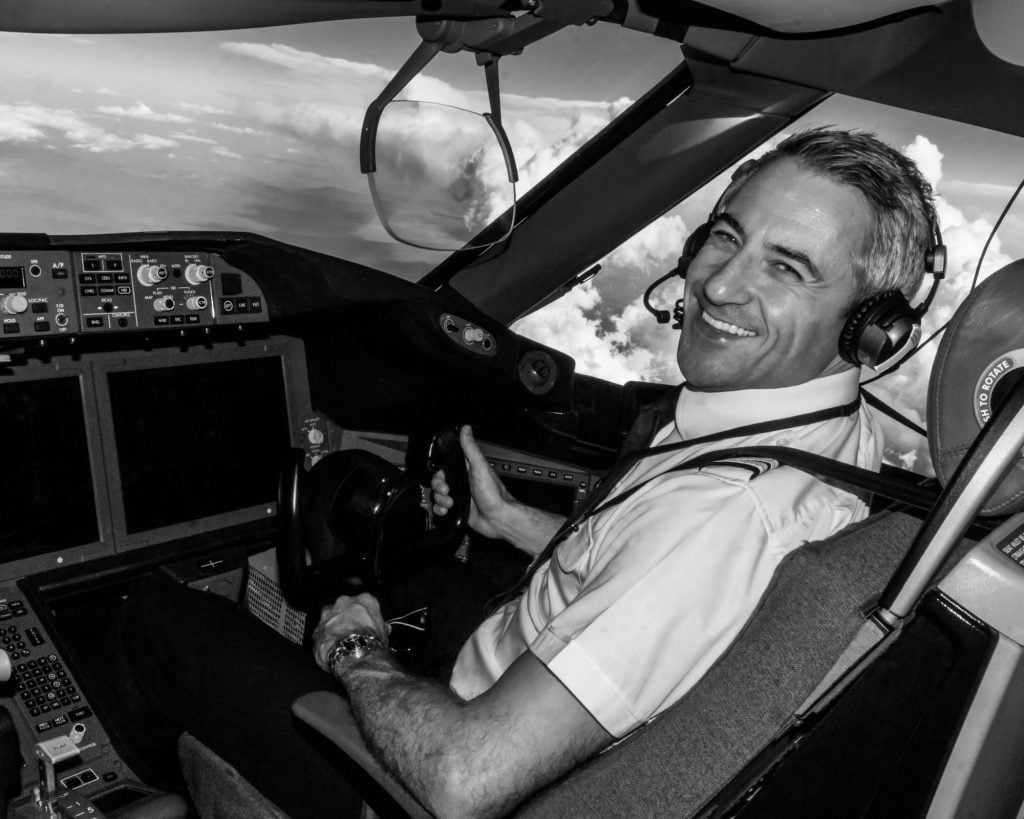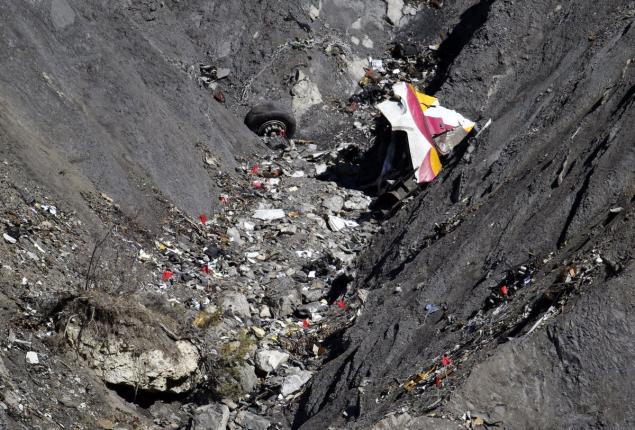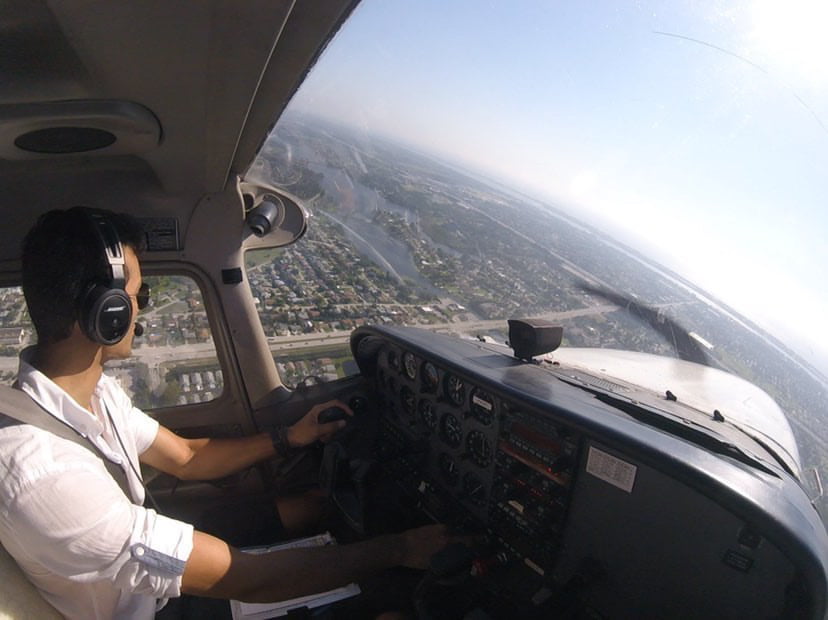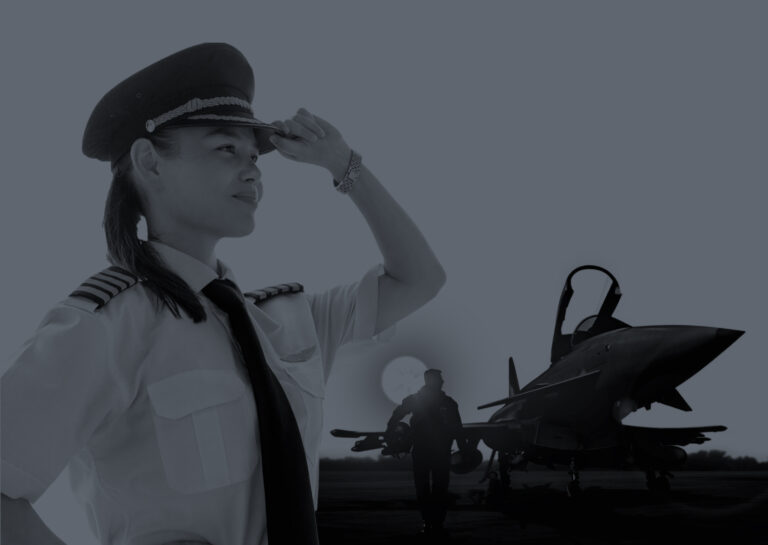A brief discussion about the Initial Class 1 Medical process in relation to Mental Health.
I’m Ian; a student pilot and helpless av-geek currently completing my Airline Transport Pilot’s Licence (ATPL) theory exams in Oxford. Having listened to Flight Deck Wingman’s first ‘For Flying Out Loud’ podcast, I immediately picked up on some notable points that struck a chord with me. Aviation is full of passionate people like Andrew who share their knowledge benevolently in order to help future aviators. I felt like I could contribute by explaining the Class 1 Medical process, drawing upon my own experiences as a newcomer to the aviation world. I hope that this piece resonates with other aspiring pilots navigating the initial Class 1 Medical system who may have had, are having, or will have in the future, similar experiences. I wish to point out that my aim is not to criticise particular people or institutions; rather, to provoke some thoughtful debate about how we can better improve certain processes, particularly at the early stages of an aviation career.

Editor, Andrew (pictured above) is passionate about supporting aspiring pilots in all ways possible into the industry.
In order to hold an ATPL, it is necessary to obtain (and maintain) a Class 1 Aviation Medical from your country’s aviation authority; in the UK, this is the Civil Aviation Authority (CAA). The Class 1 aims to ensure that airline pilots have the highest levels of overall wellbeing before being trusted with the controls of multi-million pound aircraft and hundreds of lives. Even relatively minor issues may prevent you from obtaining one and it is therefore incredibly important for anybody wishing to become an airline pilot to obtain this ‘Holy Grail’ certificate prior to undertaking pilot training. As tough as it sounds, there’s no way round it!
In my early twenties when flight training wasn’t yet on my radar, a few things happened within a short period of time turning into a difficult few years for me. The abrupt end of an important relationship, a close bereavement and rejections from universities to name a few. Like many 20 year olds, I felt like the world was against me and I spent a long time in a trough of low self esteem, battling this misconceived view. Fortunately my supportive family and a few great friends helped me seek the right help at an early stage; something I will be forever grateful for. Fast forward and 27 year old Ian has learnt that failures, disappointments and sometimes bereavements are a normal and pretty predictable part of life. Only experience combined with appropriate support can help us to differentiate between being stressed, but functioning, and being stressed to breakdown. It is exactly these challenges that help us to grow, adapt and eventually succeed in our goals.
While we all put on our best face to others, particularly on social media (myself included), when faced with adversity (of which we will all experience), sometimes it isn’t so easy to maintain unwavering positivity. Like hypoxia, depression is insidious and indiscriminate; it creeps up on anyone at anytime, regardless of age, wealth, or even fame. Depression affects 1 in 4 people according to latest figures and pilots are by no means excluded. However, for obvious reasons there are automatic bars to a Class 1 such as a diagnosis of schizophrenia, bipolar disorder, panic attacks or suicide attempts to name a few (fortunately none of which applied to me).
“While we all put on our best face to others, particularly on social media (myself included), when faced with adversity (of which we will all experience), sometimes it isn’t so easy to maintain unwavering positivity.”
For a fit and healthy person with no abnormal medical history or underlying conditions, obtaining a Class 1 is relatively straight forward. You take a day off work and visit one of the CAA’s authorised initial medical providers. All of your physical functioning is rigorously tested; i.e your eyesight, hearing, lung capacity, blood pressure, haemoglobin, cholesterol etc. The initial Class 1 costs around £560. Thankfully, I was in good physical health and had no issues at this stage.
I then sat with the doctor to review my history; this is where things became complicated. By researching in advance, I came prepared with a three page report from my GP explaining what was apparently a ‘very common’ history for someone of my age. Even though this was now a long time ago, any tick in the ‘yes’ box to depression/anxiety/low mood meant an automatic deferral of a Class 1. My GP report, despite being comprehensive, was not, and as I discovered later, would never be able to satisfy the CAA. I now had to be referred to a specialist who would write a report. Something I wish I had known before this day! I was charged a compulsory admin fee of £96 for the referral and left London, £656 poorer, pretty deflated, and wondering where this was going.
“I was charged a compulsory admin fee of £96 for the referral and left London, £656 poorer, pretty deflated, and wondering where this was going.”
2 months later and I attended my appointment with the psychiatrist I was referred to. In 45 minutes, I explained everything as thoroughly as I could, including giving examples of how I overcame later adversity. The brief conclusion? ‘The probable outcome is that the CAA will not give you a Class 1, at least not for another few years until you have had a longer period of time since you last experienced this ‘low mood’. I will write a report and submit it to the CAA but I can’t guarantee anything.’ What did this mean? Would my dream be over? Would it be postponed for a few years? Would I get a restricted medical? Would I have to go through all of this again? Could I afford any more? As well as chipping away at the motivation I was trying to maintain before even having stepped inside a cockpit, I was charged £280 for the day.
At this point I would like to bring up something Andrew raised in his podcast. Those in positions of responsibility should take great care in the way they communicate (particularly psychiatrists and doctors who ought to understand psychology better than the next person). The aviation world is no easy industry to get into and training to be a pilot is probably one of the most demanding professions to train for. To all medical staff, flight instructors, airline assessors or other; please be kind and do not underestimate the power of words, particularly when talking to younger people at the early stages of their career who are sacrificing an awful lot to chase their dreams.
“Those in positions of responsibility should take great care in the way they communicate (particularly psychiatrists and doctors who ought to understand psychology better than the next person).”
It turned out that the independent report was inconclusive and I was requested to visit the CAA’s own psychiatrist for another assessment. Despite having to spend my birthday (and another £280) at the CAA’s headquarters, my encounter with the CAA’s psychiatrist was surprisingly pleasant and for the first time, I came away with renewed positivity. A month later and I was granted the right to hold an unrestricted Class 1 (FINALLY! or so I thought). As it turned out, my initial Class 1 was now over a year old and required renewal (a Class 1 always requires annual renewal). So another month, another doctor, and £175 later and I finally obtained my full, unrestricted, Class 1. I do have to visit the CAA again in 2020 for what I hope to be a final review (for another £280 of course!).
Following the tragic loss of German Wings 9525 at the hands of Andreas Lubitz, I fully believe in the need to ensure proper scrutiny of airline pilots’ mental health. It is a demanding job both mentally and emotionally, and I for one, want my flight crew to be in the best possible health before flying me to my next destination. The aviation industry is well known for having an open safety culture in which failures, errors and even accidents are talked about openly in order to improve flight safety, but does this apply to mental health as well? I cannot speak for the support given to pilots currently working but there is room for improvement at the grass roots level. Knowing what I know about the process including the time and cost, would I have been so up front about my medical history? After all, by detailed disclosure, I was risking more than just my time and hard earned money, I was risking my entire dream if I didn’t eventually get a Class 1.

‘Valley of Debris ‘ – The remains of Germanwings flight 9525 Airbus A320. (Photo link nydailynews.com)
As an aspiring airline captain, integrity is an important trait to practice for multiple reasons. Non disclosure is serious and the risk of keeping such information quiet can not just invalidate your licence but carries serious legal implications for both you and your airline should any incidents or accidents occur. Omitting information/lying is not a habit you want to get yourself into and I am glad I disclosed my history. That said, can the process be better? Absolutely, and it should be.
“Omitting information/lying is not a habit you want to get yourself into and I am glad I disclosed my history. That said, can the process be better? Absolutely, and it should be.”
It is peculiar that any organisation could deem ‘time not under treatment’ as a positive indicator of someone’s current mental health while at the same time, asking pilots to come forward and disclose their health issues, even if it would prevent them from flying for an indefinite and unclear period of time, having the potential to further compound problems. Without clear and supportive processes, how can we have confident that our 1 in 4 pilots seek appropriate treatment?
Support should extend from the top down, explaining in clear terms, what candidates need to disclose, what reports they may need and where possible, the approximate cost and time of obtaining them. The necessity to conduct inquisition should be explained as I have tried to do above and should be framed in a positive light, showing clearly what the authorities are looking for when they come across candidates with any such history. Understanding the stages and timescales prior to embarking on the initial Class 1 might help to settle the minds of anyone with any mental health history as opposed to embarking on the seemingly never ending path that I did.
“Support should extend from the top down, explaining in clear terms, what candidates need to disclose, what reports they may need and where possible, the approximate cost and time of obtaining them.”
Additionally, I believe there is room for a more accountable private sector, particularly with regard to cost. I am not alone in saying that aviation needs to be more inclusive and encourage people from a wider range of backgrounds to consider pilot training. The costs associated with obtaining a Class 1 are questionable at present and have the potential to deter those from less wealthy or elite backgrounds who would ordinarily make excellent pilots. If it were not for the good job, amazing boss and flexible workplace that I had, it would have added another big barrier to my journey.
In the uncertain aviation world that we now find ourselves in, the process of obtaining initial medicals should not add to what is already a stressful process for student pilots; flight training. That said, while the process of bleeding money and being left in limbo for over a year gave me a few more grey hairs and extracted from me more than one rant of expletives, in a strange way it also made me more resilient and determined to achieve my dreams, whatever the cost. Remember that everyone you meet is going through a battle you know nothing about. Chase your dreams with everything you have, support others along the way and always remember to be kind.

Ian seen during his PPL training…
“Chase your dreams with everything you have, support others along the way and always remember to be kind.”
Editors note: We would like to thank Ian for this honest, frank and open article. Mental well-being is something we should all take responsibility for, particularly when it comes to supporting our colleagues – whether brand new to the industry, or experienced.
